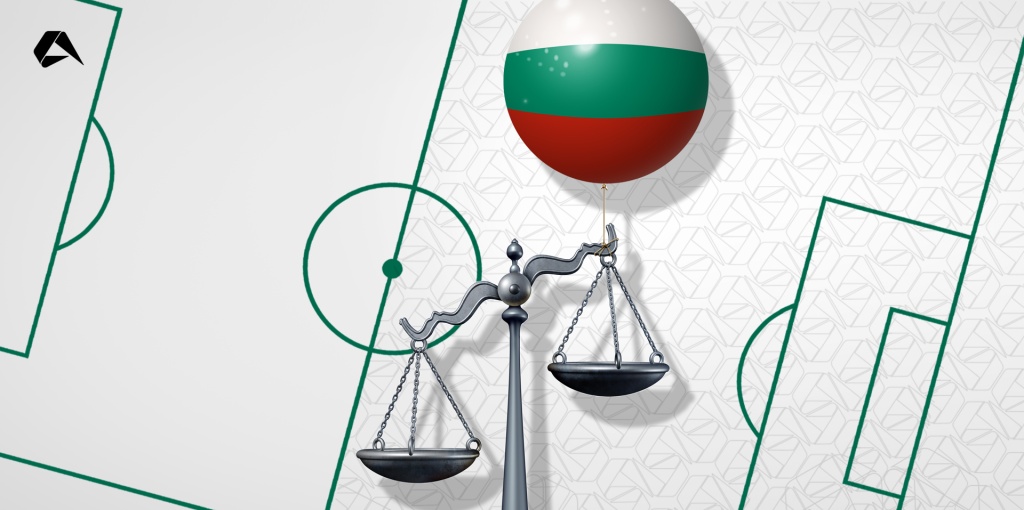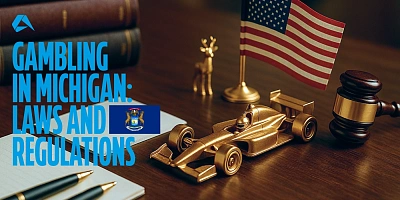Overview Gambling Laws in Bulgaria: Regulation and Legality for Operators in 2024
Bulgaria presents an emerging European gambling market with significant growth potential, with sports and online casino segments estimated to expand by 20% and 30% respectively in the coming years. Gambling was legalised in 1993, with a comprehensive legal framework established in 1998, and the Gambling Act (GA) 2012 specifically addressing the growing demand for online gambling.
Currently, all forms of gambling are legal, though online lotteries are largely under state jurisdiction. The regulatory oversight was transferred from the State Commission on Gambling (SCG) to the National Revenue Agency (NRA) in 2020, with the Anti-Money Laundering (AML) Unit formed in 2023 to combat financial crimes.
For online operators, obtaining a specific NRA licence is mandatory, requiring demonstration of financial stability and technical capability. Operators face a 20% gambling tax on the difference between bets and winnings, alongside a one-time licence fee of approximately €204,500 for a five-year online gaming licence, and annual social responsibility contributions. Advertising is highly regulated, with an impending ban on most forms of television, radio, print, and website advertising, and a requirement to include gambling addiction risk messages. Player protection measures like self-exclusion tools and age verification are also essential.
Bulgaria is an emerging European market with significant growth potential. The sports and online casino segments are estimated to expand by 20% and 30%, respectively, in the coming years.
This article provides a comprehensive overview of market conditions and the pros and cons of market entry in 2024.
The History of Bulgarian Gambling Law
Bulgaria’s foray into legal gambling began in 1997 with the establishment of a state lottery. As in other Eastern European countries, gambling was illegal under Soviet rule. Hence, aside from the state lottery, gambling was banned in Bulgaria until the fall of the Soviet Union in 1991. It was subsequently legalised in 1993, paving the way for the country’s first physical casino venue. Five years later, the government introduced measures to regulate all forms of gambling.
A comprehensive gambling law was first established in 1998, creating an official legal framework for various gambling activities, including sports betting, casino games, and lotteries. A few years later, regulation was extended to cover slots and activities under the umbrella of electronic game machines (EGMs), acknowledging the growing popularity of this form of entertainment nationwide.
The march towards legalisation gained momentum in 2008 when the State Commission on Gambling (SCG) was established. The SCG was tasked with overseeing all gambling activities in the country, ensuring compliance, and issuing licences to protect players. This responsibility has now been transferred to the National Revenue Agency (NRA).
Major amendments to the 1998 gambling law occurred with the creation of the Gambling Act (GA) 2012 in response to the growing demand for online gambling. The amendments introduced a provision for gaming licences and set a framework to control online platforms. Detailed regulations governing iGaming, covering compliance checks and technical standards came into effect the following year.
With a clear online and offline legal gambling policy, regulation was transferred from the SCG to the National Revenue Agency (NRA) in 2020 to enhance regulatory oversight. Their initial focus was to regulate illegal gambling activity. This led to the creation of the Anti-Money Laundering Unit (AML) in 2023, which introduced customer verification requirements and financial risk assessments.
Here’s a timeline of the key milestones in Bulgaria’s gambling history:
1979: The creation of the Bulgarian State Lottery.
1993: Official legalisation of casino gambling.
1998: Introduction of a new framework for gambling law.
2000: Expansion of regulations to include EMGs.
2008: Establishment of the State Commission on Gambling.
2012: Creation of the Gambling Act (GA).
2013: Implementation of online gambling regulations.
2020: Transfer of gambling regulation from SCG to the NRA.
2023: Creation of the AML unit to combat money laundering.
The Legal Landscape for Gambling in Bulgaria in 2024
All forms of gambling are legal in Bulgaria, including online casino games, sportsbooks, poker, and bingo. Lotteries are also legal, though due to amendments to the Gambling Act in 2021, online lotteries, with the exception of raffles, bingo, Keno and their variations, are under the government's jurisdiction and may only be issued by the state.
The legal framework and gambling regulations are also considerably more stable than in other European countries. Moreover, Bulgaria offers one of the most accessible and unrestricted licensing policies in the European Union, treating EU, EAA, and Swiss private gambling operators on a par with Bulgarian counterparts.
Today, the regulatory framework aligns with international standards and technological advancements. The NRA oversees a meticulous licensing policy that promotes integrity and responsible gambling to protect consumer interests.
Regulations and Compliance for Online Gaming Operators
Online gambling in Bulgaria is regulated under the Bulgarian Gambling Act (GA) of 2012, which has since undergone revisions to supplement legislation in the area of online gambling. The regulatory framework is highly developed and well-structured, overseen by the NRA to ensure all iGaming operators meet high standards in fairness, integrity and social responsibility.
Here’s an overview of the essential regulations and compliance requirements that private operators must meet to provide online gambling services in Bulgaria:
Licensing Requirements
Operators must obtain a specific licence from the NRA to offer online gambling products and services in Bulgaria. This demands a detailed application process to demonstrate financial stability, technical capability and the lack of criminal ties or convictions. Operators must also undertake a rigorous gambling software inspection to meet strict standards for fair play.
Tax Obligations
In addition to the standard licensing fee, licensees must also pay a gambling tax equal to a 20% difference between the bets placed and winnings paid out. Financial obligations are stringent and non-negotiable.
Advertising and Marketing Regulations
Advertising and marketing of gambling services are highly regulated in Bulgaria. Advertising must not target minors or falsely claim that it can solve personal problems. Moreover, marketing material must contain a message underscoring the risks of gambling addiction.
Further to this, Bulgaria is set to completely prohibit most forms of gambling advertising on television, radio, print media and websites after Bulgarian MPs unanimously voted in favour of a ban. The bill is expected to pass into law as soon as it is signed by the country’s president.
Player Protection Measures
Online operators must proactively integrate player protection tools, including, but not limited to, self-exclusion tools, betting limits, and risks of gambling messages and notifications. Furthermore, age verification systems must be in place to ensure that all players are over 18.
Compliance with Domestic Laws
Online gambling operators must also comply with domestic law, particularly as it pertains to advertising regulation, consumer and data protection, as well as AML policies, among others.
Further Considerations:
No laws prohibit Bulgarian players from playing on international offshore sites, but internet service providers will block unlicensed iGaming operators.
Gambling Fees and Taxes
The Bulgarian government has sought to create a balanced gambling fee and tax system in recent years. Gambling legislation aims to lower barriers for licensees, make a fair contribution to state revenues and provide additional funds for good causes, such as the fight against gambling addiction.
Gaming licence application fees in Bulgaria vary depending on several factors, including the type of gambling activity the operator intends to offer. Generally, for online gambling licences, this can be between €5,000 and €20,000 for a five-year licence.
As of January 1, 2024, The government has introduced an increase in the one-off fixed component of the state licensing fee to issue and maintain an online gaming licence. Betting operators must now pay a one-time fee of BGN400,000 (approx. €204,500), plus a monthly tax fee of 20% on the difference between bets placed and winnings paid out.
In addition, gambling organisers are obliged to make annual contributions for socially responsible behaviour for each licence issued. For online betting, this amounts to BGN 50,000 (approx. €25,600), which must be paid by March 31 of the current year. Gambling organisers licensed after that date shall pay the annual contributions within 30 days from receipt of the licence, and interest at the legal rate shall be payable on contributions not paid on time.
Despite EU membership, Bulgaria has complete autonomy over its gambling laws. Collectively, three institutions provide the legal framework that governs gambling law. These are:
Ministry of Finance
The Ministry of Finance influences the gambling sector by integrating fiscal policies with regulatory measures. Typically, it collaborates with other departments and regulatory authorities to draft legislation that affects economic aspects associated with gambling, such as taxation and financial compliance. At its core, the Ministry ensures that gambling regulations contribute to the national budget while promoting responsible gambling practices.
National Revenue Agency (NRA)
Tasked with regulatory oversight following the dissolution of the previous gambling commission (the SCG), the National Revenue Agency is responsible for enforcing all gambling laws in Bulgaria. It handles the licensing process, monitors operator compliance with legal standards, and enforces tax collection from gambling activities. The agency’s role is vital in maintaining the industry's integrity, safeguarding consumer interests, and ensuring legal and transparent company operations.
The AML Unit
The AML unit operates under the NRA. Its formation was prompted by the need to align with the EU's regulatory frameworks, which mandate rigorous oversight of financial transactions to thwart money laundering efforts and terrorist financing. The AML Unit monitors gambling operations, ensures operators comply with legal requirements, and conducts thorough investigations into suspicious activities. This unit plays a leading role in maintaining the integrity and transparency of Bulgaria's iGaming sector and safeguarding it against financial crimes.
The Benefits of Operating in Bulgaria
Bulgaria’s proactive, forward-thinking approach has created a thriving iGaming market that promises substantial growth in the years ahead. Moreover, balancing operator interests and player protection has paved the way for the local gambling industry to flourish, providing significant opportunities for iGaming operators.
Like any other gambling jurisdiction, opening up in Bulgaria presents both opportunities and challenges:
Advantages for Operators
-
Access to a growing market of tech-savvy consumers.
-
Respected licence for customer acquisition and retention.
-
EU Member. It may provide easier access to other EU markets.
-
Can be located anywhere. Local presence is not required.
-
Low corporation tax fixed at 10% with competitive licence fees.
-
Stable licensing environment that supports operator interests.
-
Robust digital infrastructure with qualified low-cost personnel.
Disadvantages for Operators
-
Limited population size (approx. 6.5m).
-
Lotteries are closed to private operators. The state has a monopoly on lotteries, with the exception of raffles, Bingo, and Keno games.
How to Apply for a Gambling Licence in Bulgaria
To obtain a legal licence for the provision of online gambling services in Bulgaria, operators must submit an application to the NRA.
Status: Must be an EEA or Swiss-registered company.
Reputation: Operators must be in good standing with no prior violations of the Bulgarian Gambling Act.
Representation: Non-Bulgarian entities must appoint a local representative.
Capital: Paid-in share capital of BGN 1.5m (approx. €766.5m) minimum is required.
Banking: Must use an EU bank account for customer deposits and withdrawals.
Technical: Computer systems, networks and software must meet specific criteria. Servers can be based in Bulgaria, Switzerland or any other country in the EU or EEA, but equipment that stores the information and data must be kept within Bulgaria.
Connectivity: New software and updates must meet NRA approval, and systems must connect with NRA servers sharing customer identity.
Application Process
To secure a gaming licence in Bulgaria in 2024, iGaming operators must follow a series of precise steps that closely resemble those observed by other licensing authorities in Europe.
1. Eligibility Assessment: Verify that the company meets the legal and financial criteria established by the Bulgarian gaming authorities.
2. Establish Presence: Incorporate your business in Bulgaria or appoint a local representative.
3. Application Submission: Prepare and submit a detailed application to the NRA, including business plans and software details.
4. Compliance Audit: Undergo a thorough audit to demonstrate adherence to Bulgaria’s gaming regulations and standards.
5. Technical Inspection: Ensure all gaming software and systems pass technical inspections for fairness and security.
6. AML Procedures: Implement approved anti-money laundering practices and procedures as per regulatory requirements.
7. Licence Fee Payment: Pay the required licensing fees, which vary depending on the type of games and operations.
Post-Licensing Obligations
Licences typically last for five years, requiring specific ongoing commitments to maintain.
Investment: After receiving a Bulgarian Gaming Licence, operators must make an initial BGN 1m (approx. €511m) investment within the first six months.
Compliance: Adherence to ongoing compliance with all domestic laws is required, especially in gambling advertising and promotion, consumer and data protection, anti-money laundering, etc.
Commercial: Service level agreements (SLAs) may be required.
Access for Operators in 2024
Acclaimed software provider Altenar has significant experience helping iGaming operators realise their ambitions in the expanding Bulgarian market, providing sportsbook solutions to leading platforms like Everbet, Magic Bet and 8888.bg, to name a few.
Connect with Altenar today to begin your journey towards growing a brand in Bulgaria.
Disclaimer
This information is not intended to be legal advice and is solely extracted from open sources. It should not be relied upon as a substitute for professional legal advice and Altenar does not accept any liability in relation to its use.













